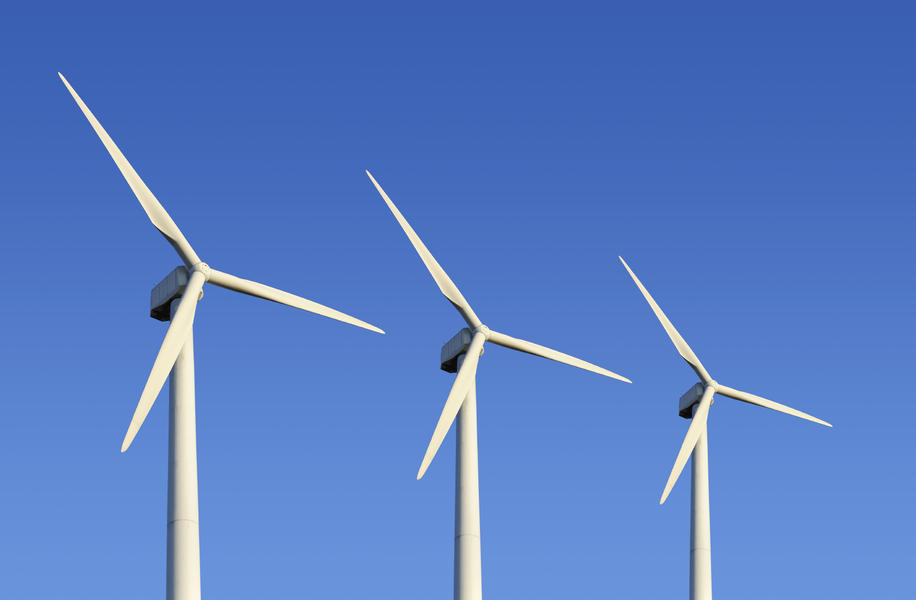Germany now gets 28.5 percent of its total energy from renewables

A free daily email with the biggest news stories of the day – and the best features from TheWeek.com
You are now subscribed
Your newsletter sign-up was successful
I have been convinced for a long while that renewable energy, particularly solar, is on a pathway to becoming the world's dominant form of energy. (And it's not just me — even Big Oil agrees that solar power will eventually win out.)
But I expected that expansion of renewables would only really begin to take off once the price of renewables fell below that of conventional fuels. And while the price of renewables is falling and falling, it still isn't cheaper in most countries (although, it is on course to be be cheaper than coal and nuclear by the end of the decade).
Still, that hasn't stopped Germany's massive solar rollout. As Brian Merchant of Vice notes: "Germany is now producing 28.5 percent of its energy — nearly a third — with solar, wind, hydro, and biomass. In 2000, renewables accounted for just 6 percent of its power consumption." Merchant adds that one day this year 75 percent of German power consumption came from renewables, smashing existing records.
The Week
Escape your echo chamber. Get the facts behind the news, plus analysis from multiple perspectives.

Sign up for The Week's Free Newsletters
From our morning news briefing to a weekly Good News Newsletter, get the best of The Week delivered directly to your inbox.
From our morning news briefing to a weekly Good News Newsletter, get the best of The Week delivered directly to your inbox.
Remember: This is not occurring in a small, obscure country, but in the industrial heartland of Europe.
Germany has done this by cleverly incentivizing its solar rollout. Electricity firms are obligated to pay producers of solar electricity a fixed tariff for solar-generated electricity fed back into the grid over the 20-year lifetime of the solar panels. This guarantee provides security for investors in photovoltaics, making solar economically sustainable earlier that it would otherwise be, thereby smoothing the transition to a renewable-energy economy and lowering carbon emissions.
A free daily email with the biggest news stories of the day – and the best features from TheWeek.com
John Aziz is the economics and business correspondent at TheWeek.com. He is also an associate editor at Pieria.co.uk. Previously his work has appeared on Business Insider, Zero Hedge, and Noahpinion.
-
 The environmental cost of GLP-1s
The environmental cost of GLP-1sThe explainer Producing the drugs is a dirty process
-
 Greenland’s capital becomes ground zero for the country’s diplomatic straits
Greenland’s capital becomes ground zero for the country’s diplomatic straitsIN THE SPOTLIGHT A flurry of new consular activity in Nuuk shows how important Greenland has become to Europeans’ anxiety about American imperialism
-
 ‘This is something that happens all too often’
‘This is something that happens all too often’Instant Opinion Opinion, comment and editorials of the day
-
 Nobody seems surprised Wagner's Prigozhin died under suspicious circumstances
Nobody seems surprised Wagner's Prigozhin died under suspicious circumstancesSpeed Read
-
 Western mountain climbers allegedly left Pakistani porter to die on K2
Western mountain climbers allegedly left Pakistani porter to die on K2Speed Read
-
 'Circular saw blades' divide controversial Rio Grande buoys installed by Texas governor
'Circular saw blades' divide controversial Rio Grande buoys installed by Texas governorSpeed Read
-
 Los Angeles city workers stage 1-day walkout over labor conditions
Los Angeles city workers stage 1-day walkout over labor conditionsSpeed Read
-
 Mega Millions jackpot climbs to an estimated $1.55 billion
Mega Millions jackpot climbs to an estimated $1.55 billionSpeed Read
-
 Bangladesh dealing with worst dengue fever outbreak on record
Bangladesh dealing with worst dengue fever outbreak on recordSpeed Read
-
 Glacial outburst flooding in Juneau destroys homes
Glacial outburst flooding in Juneau destroys homesSpeed Read
-
 Scotland seeking 'monster hunters' to search for fabled Loch Ness creature
Scotland seeking 'monster hunters' to search for fabled Loch Ness creatureSpeed Read